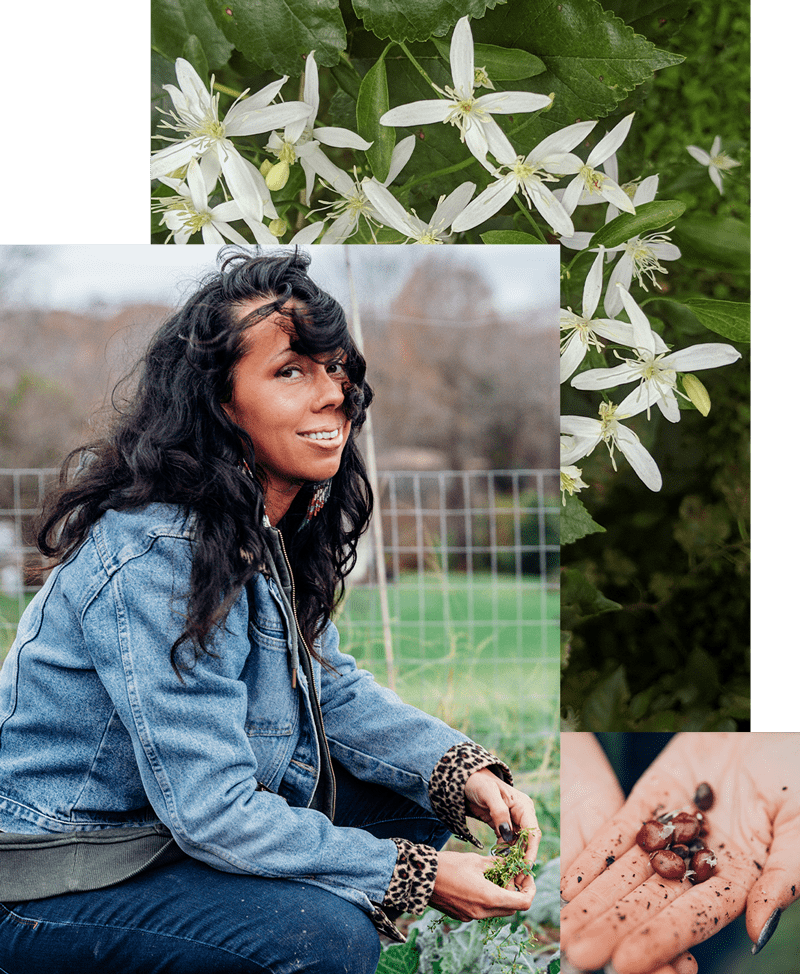
MEET A FARMER
AMYROSE FOLL
We do not have food shortage problems. We have social justice, and equitable distribution of food problems coupled with disregard for the sacred soil beneath our feet.
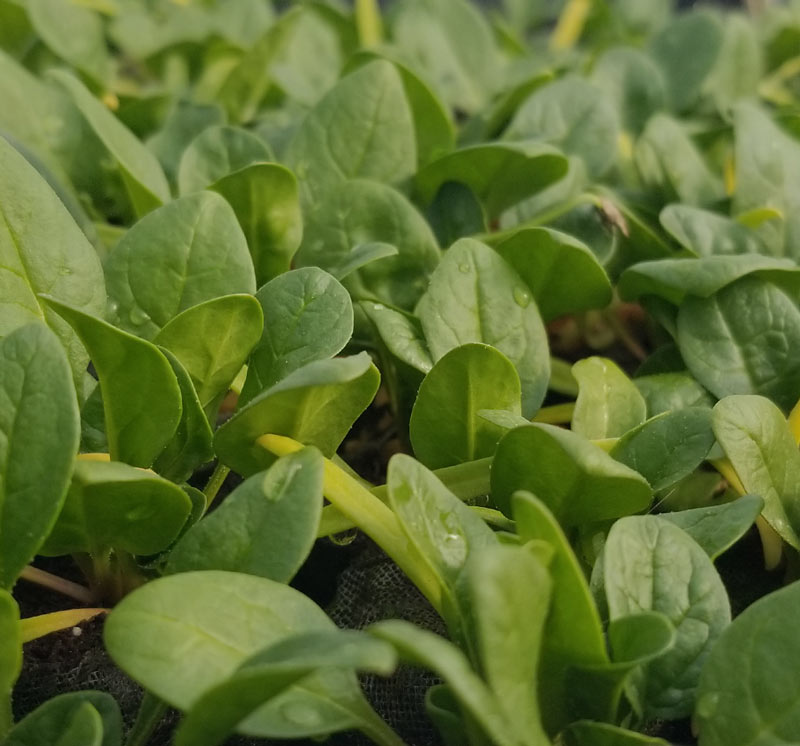
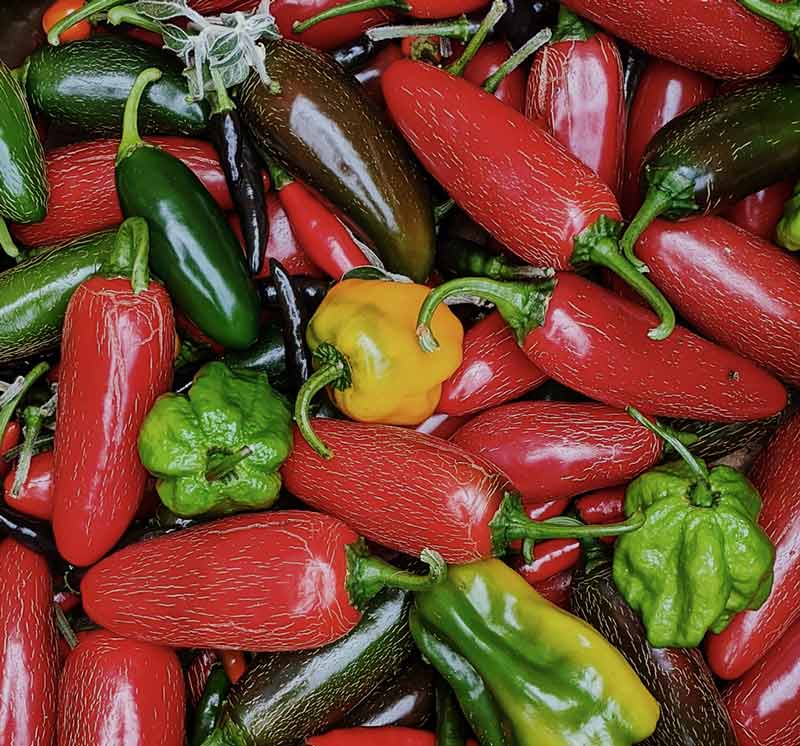
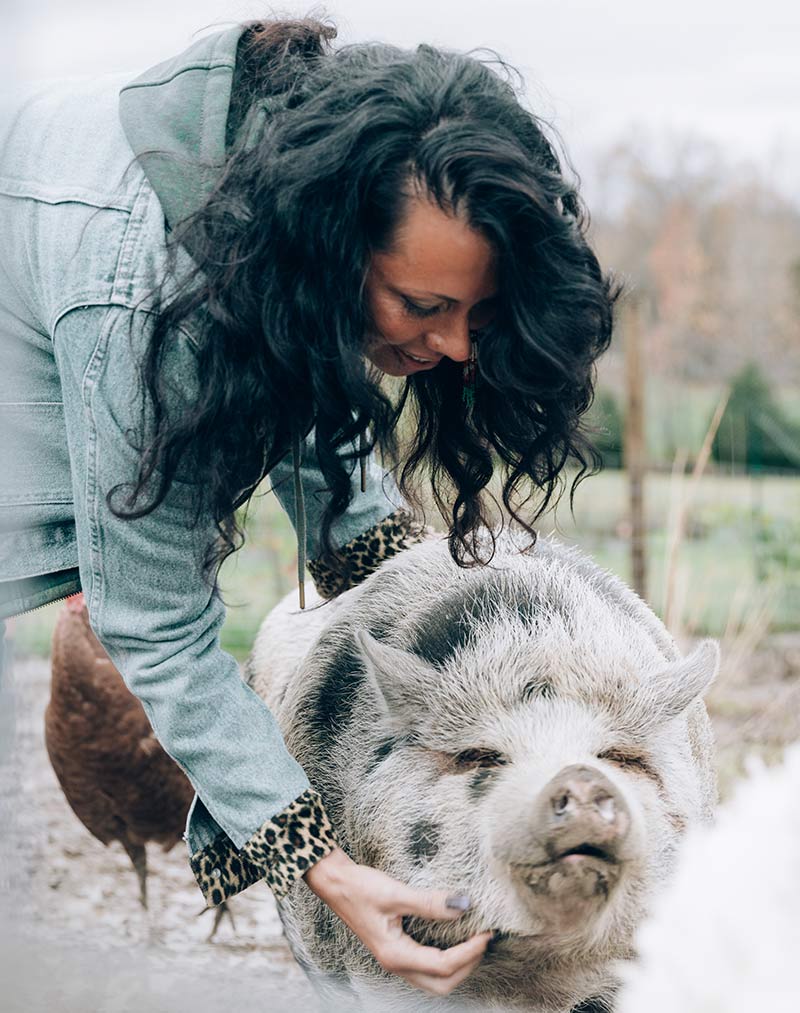
I don’t remember when I started feeling connected to the land. I grew up that way and I don’t know any other way to be.
Unhealthy, processed foods lead to sickness, disease, and pharmaceutical dependence over prevention.
We’ve become a commodity. Once we get sick from the food that we’re consuming, we become a consumer of healthcare.
In Virginia,
842,870 people
are struggling with hunger, and of them…
233,530 are children
That is,
1 in 10 people…and
1 out of 8 children
Since COVID-19 that number has increased to:
There is nothing more urgent than someone going hungry.
At the same time Amyrose became aware of the severe food justice issues in Fredericksburg, Richmond and Charlottesville, Virginia, she looked out her window and noticed the abundant surplus of food in her own backyard garden. It struck her in a way it never had before. Amyrose is an avid lover of growing food or as she would say, wildly obsessed.
“Being amongst the soil and growing food is like reconnecting with old kin that you have not seen in a long time. There’s no feeling like putting your hands in the dirt for the first time. It makes your whole soul just go. It’s the best feeling ever. I wouldn’t give that up for anything. I will do it until I’m 100 years old.”
She grows anything she can get her hands on and if you walked into her house the first thing she would show you would be two fridges bursting full of seeds she’s saved and shared over the years.
That fateful day as she peered out her window, she realized there was far more food to harvest than her family could ever consume, and that’s when it clicked. There is an abundance of food going to waste in backyard gardens everywhere and leftover produce left unsold at farmers markets or unused in restaurants. Simultaneously, there is a horrifying number of people going hungry every night that could benefit from food that would otherwise be wasted if only there was an intermediary to get food to them.
She began to show up where the need was the loudest – homeless, undocumented, women discharged from detention centers, single moms and the elderly.
Once Amyrose’s gaze met the eyes of aging grandmothers, struggling young families, devastated homeless people, growing children and infants who had access to boxes of processed food and bags of conventional produce that would only make them sicker, she knew she had to do something. Something different. She calls it Virginia Free Farm.
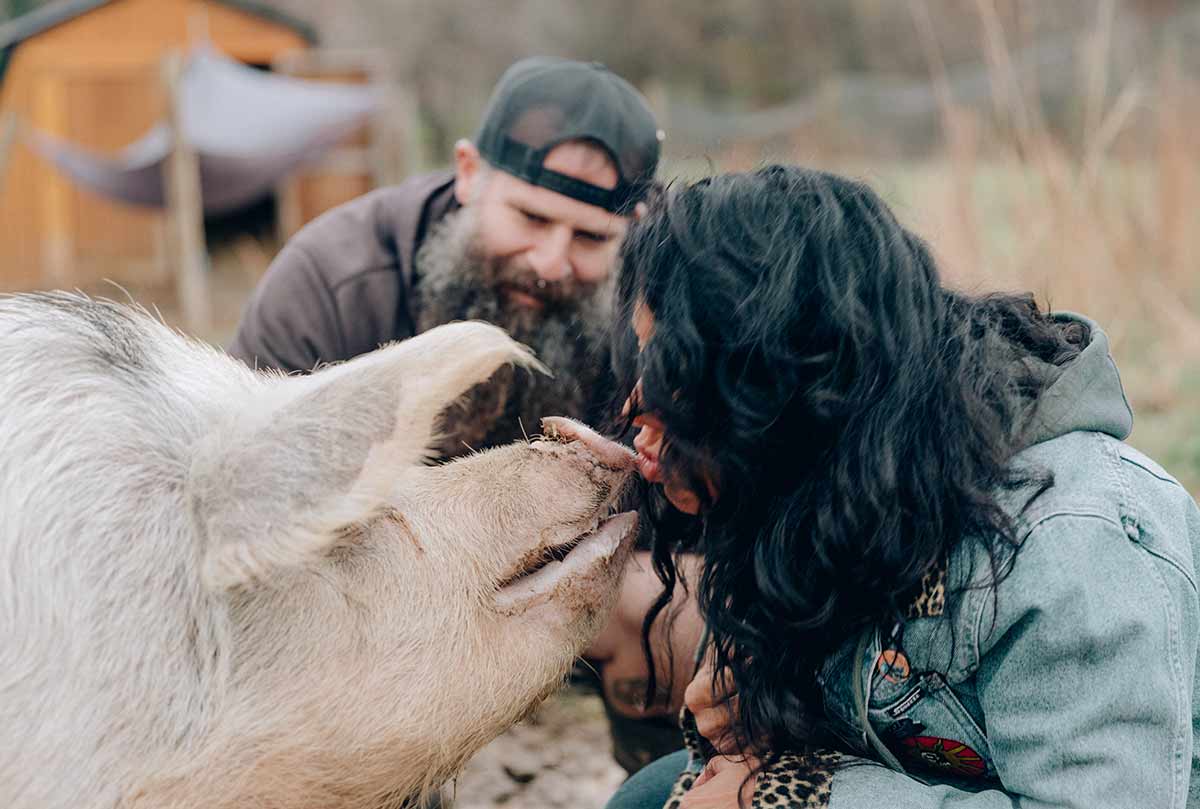
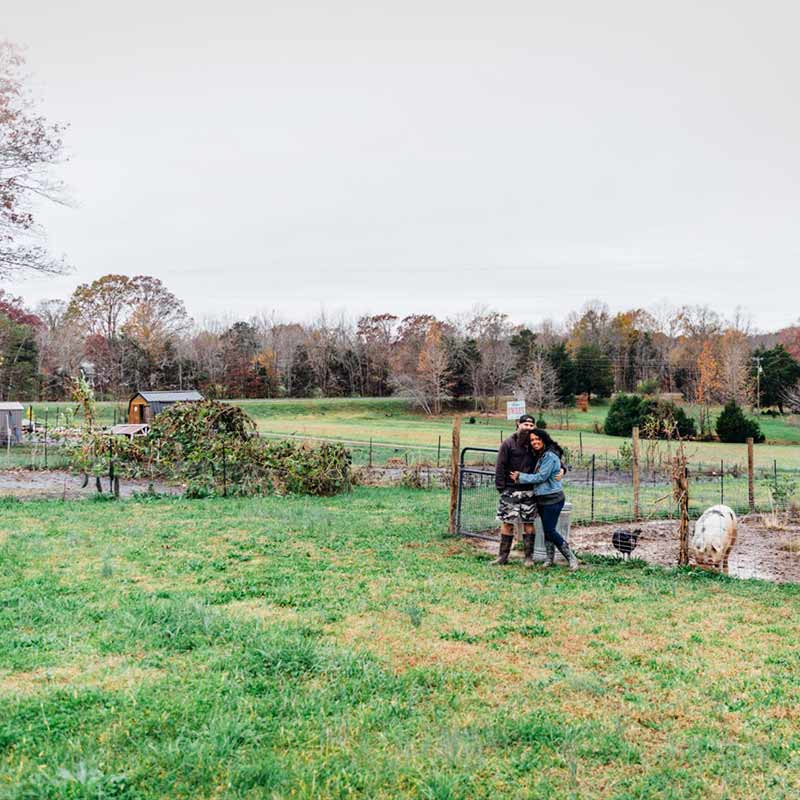
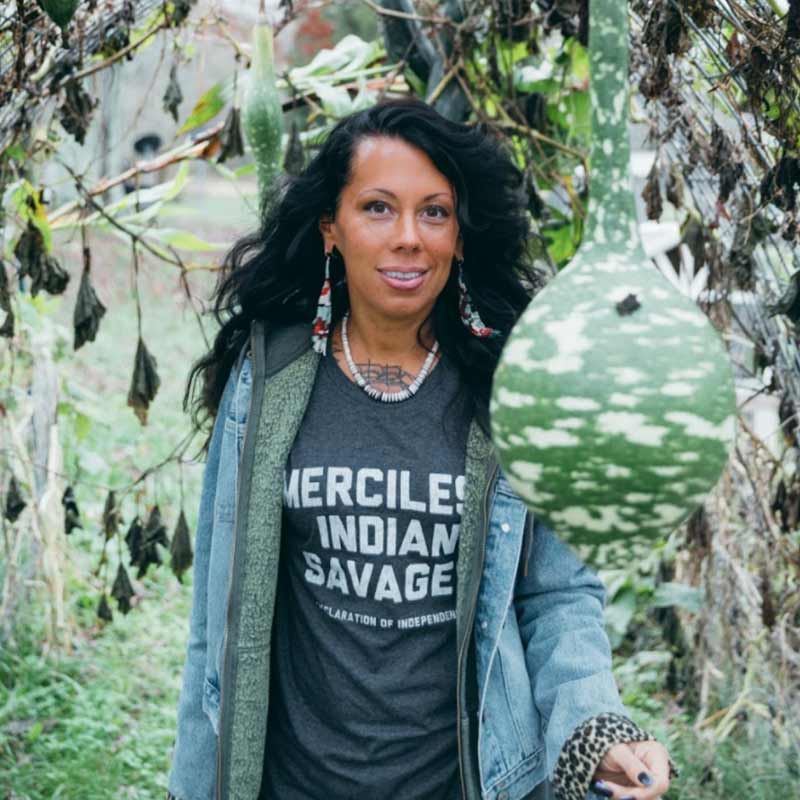
We want to address BOTH the adequacy of the food supply, and the means of community co-created change involving food acquisition, equitable distribution, and production.
Other activists, and NGOs have led efforts in one direction or the other without tying both together.”
She didn’t want to be the endless hamster wheel handing out food, she wanted to hand people the tools, the seeds, and the knowledge to unlock the freedom that comes with self sufficiency.
“If it’s done right and done big enough, we can change the trajectory of people’s lives. Food is a major actor in transmission of cultural traditions and history. It tells a story, and by preserving it, we can use the way people think about food and culture to sing those stories to future generations.”
Amyrose understands income, race, geography, the social and racial inequalities within the the food system were created on a foundation of institutional racism and discrimination. She can see people in her community have been deemed unworthy of having access to nutritious food and how the system perpetuates the degrading cycle.
Her vision for a better future food system involves solving both the issue of food insecurity for disenfranchised communities and financial insolvency plaguing many small farms. Her goal is to feed those in need, and provide an economic safety net for the farming families that are restoring regenerative agriculture to the local landscape.
She is addressing food insecurity for the local homeless population that started with empathy.
So many people and organizations bypass the fact that a homeless person can’t do anything with a dozen eggs or fifty pounds of fresh produce.
“They can’t cook it, so I found someone who could.”
She now partners with Blessing Warriors who take the excess food, prepare it and deliver fresh meals for the local homeless population.
She is addressing food insecurity for undocumented families. To receive any of the resources and support from the local food bank, you have to have documentation. Amyrose bypassed the system and partnered with the Little Flower Catholic Worker Farm to get food to families who would not have access to healthy food had she not made the connection.
She is addressing food insecurity for women getting out of the department of corrections facilities. Not only does she provide them with food, she gives them baby chickens and ducks as a form of therapy giving them the opportunity to work directly with livestock, plant seeds, and grow food as a way to rise up and find purpose in being able to sustain themselves and their community.
She is showing up for people often forgotten or ignored within a community. She’s wrapped her wings of the most sincere care around them and is bringing them back into the fold of the community through food.
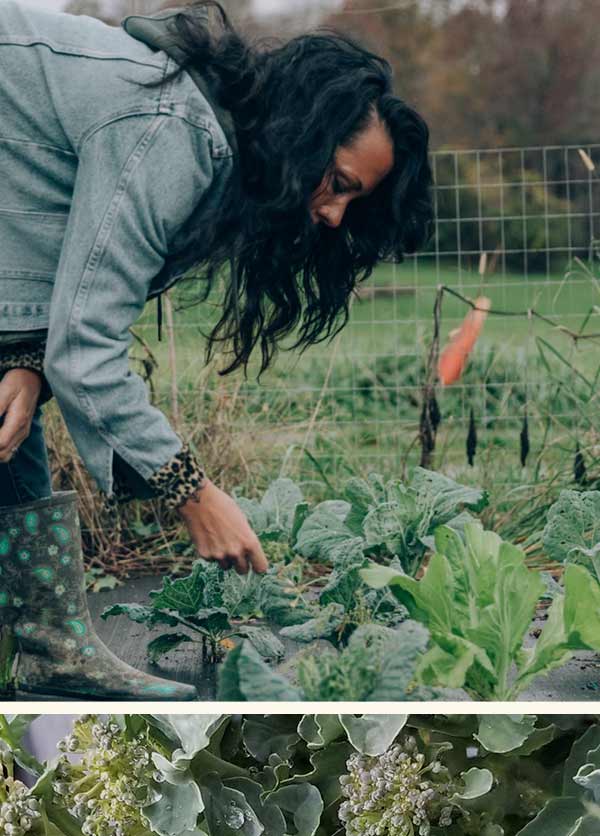
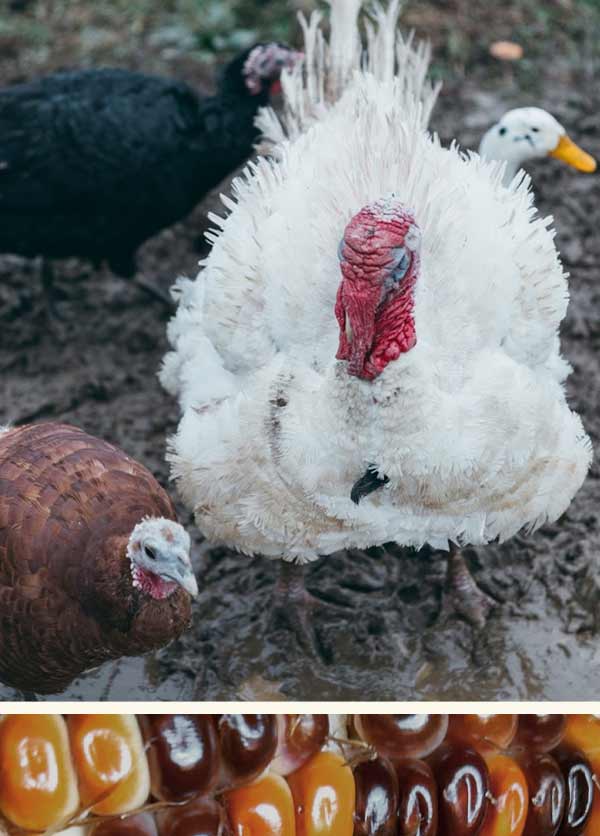
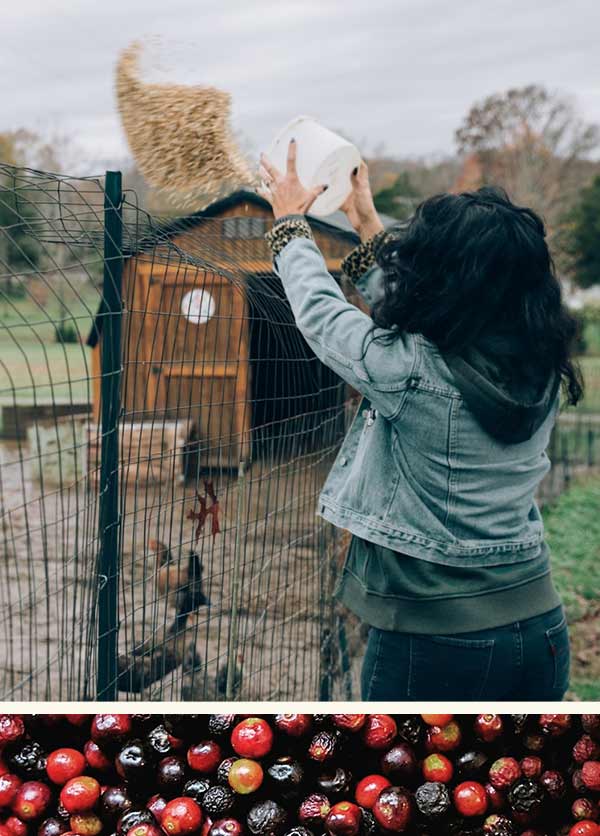
SO HOW DOES THIS MODEL WORK?
“The importance of economic sustainability must be tantamount to the necessity of environmental and social improvement. With a transparent dynamic food system we can be a powerful change agent.”
Amyrose and her team connect farms that take a holistic approach to stewardship and husbandry with a way to ensure that any food unsold at the end of the week at farmers markets does not result in economic losses for the farmer.
They leverage the enormous network of active farms in the state and use donor contributions to compensate farmers for unsold farm goods. These goods are then distributed to those in need through community partners to get food to people in need.
The benefits of this model are proving fruitful in ways she never expected. The local economy is regenerated by these dollars going back into the pockets of farmers, farmers who are stewarding the land with indigenous and regenerative practices are encouraged to continue because of increased demand, healthy and local food is now accessible to those who normally wouldn’t have access due to cost or distance, the overall health of people within these communities is improving, and aspiring farmers are encouraged to start growing because it is less risky when there is an established channel for growth.
This model doesn’t only have the potential to end food waste, profit loss, and hunger from lack of access in this 100 mile radius in Virginia, it can be replicated in any other community ready to make a change.
The ripple effect Amyrose has created in such a short period of time is astounding.
The seeds, livestock, chickens, tools and knowledge that pass through her hands and into the hands of those searching for sovereignty are simply a gift she passes along from the Earth.
Each of these resources she shares multiplies far beyond the initial exchange because once she’s combined education with the right tools, it unlocks possibility. Now she’s empowered new purveyors of food sovereignty who can grow for their own families and community.
“I want to democratize access to good food and I don’t want to stop doing it.”
I love feeding people. It is the source of freedom for humankind.
CO-CREATION, NOT RE-CREATION
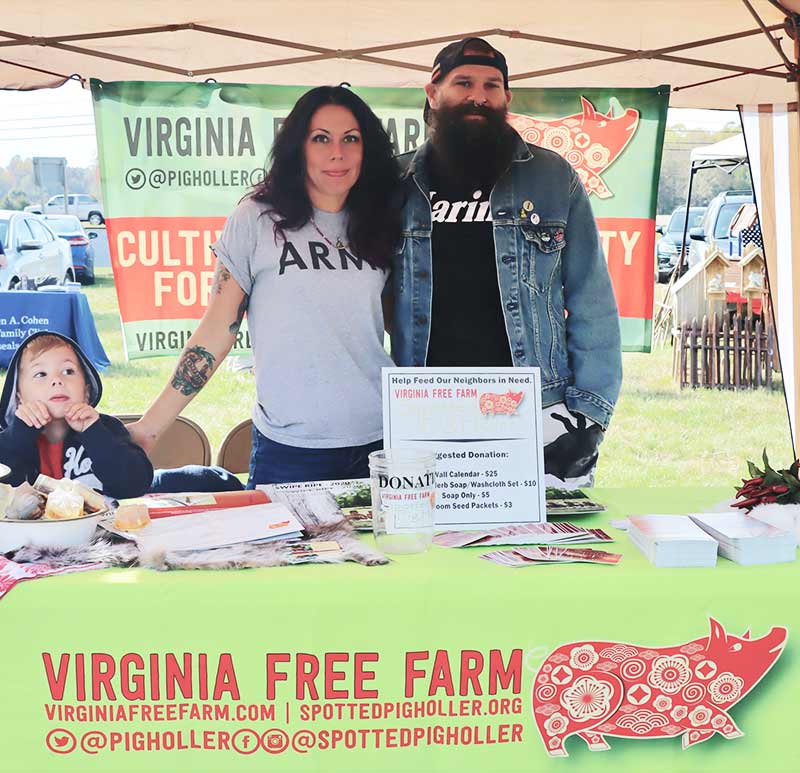
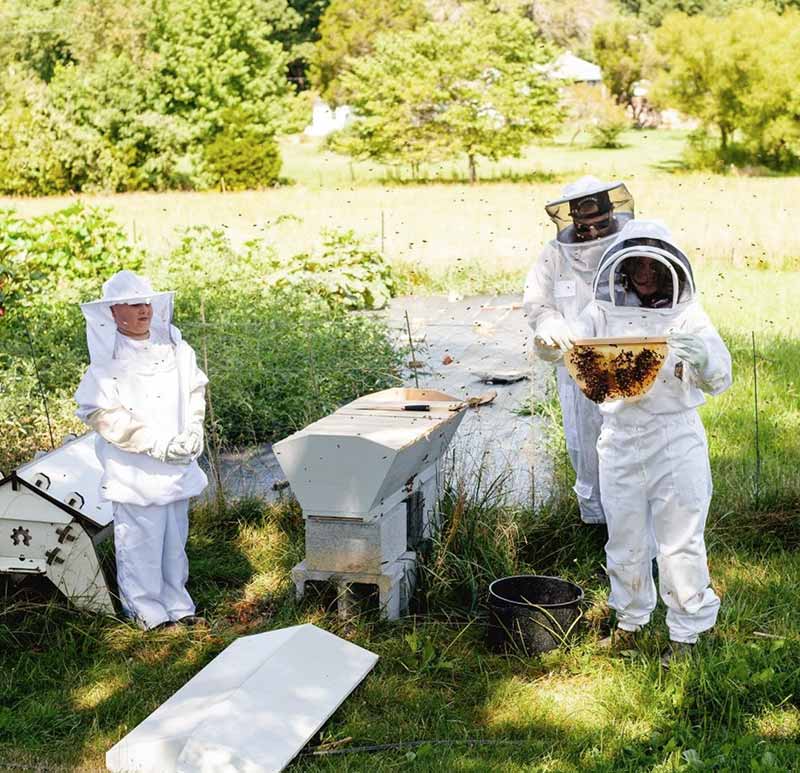
Support Amyrose and Virginia Free Farm:
Website:
Social:
